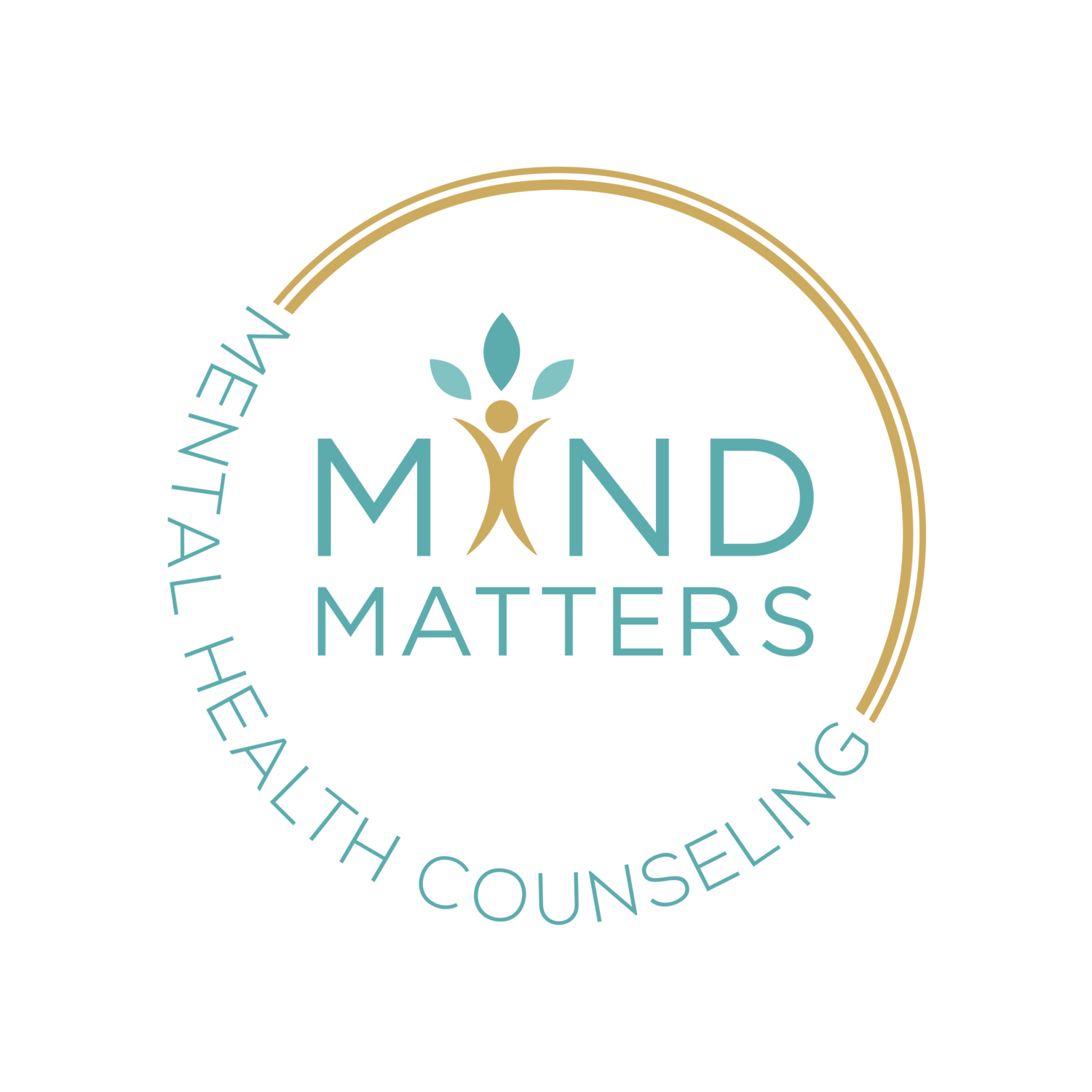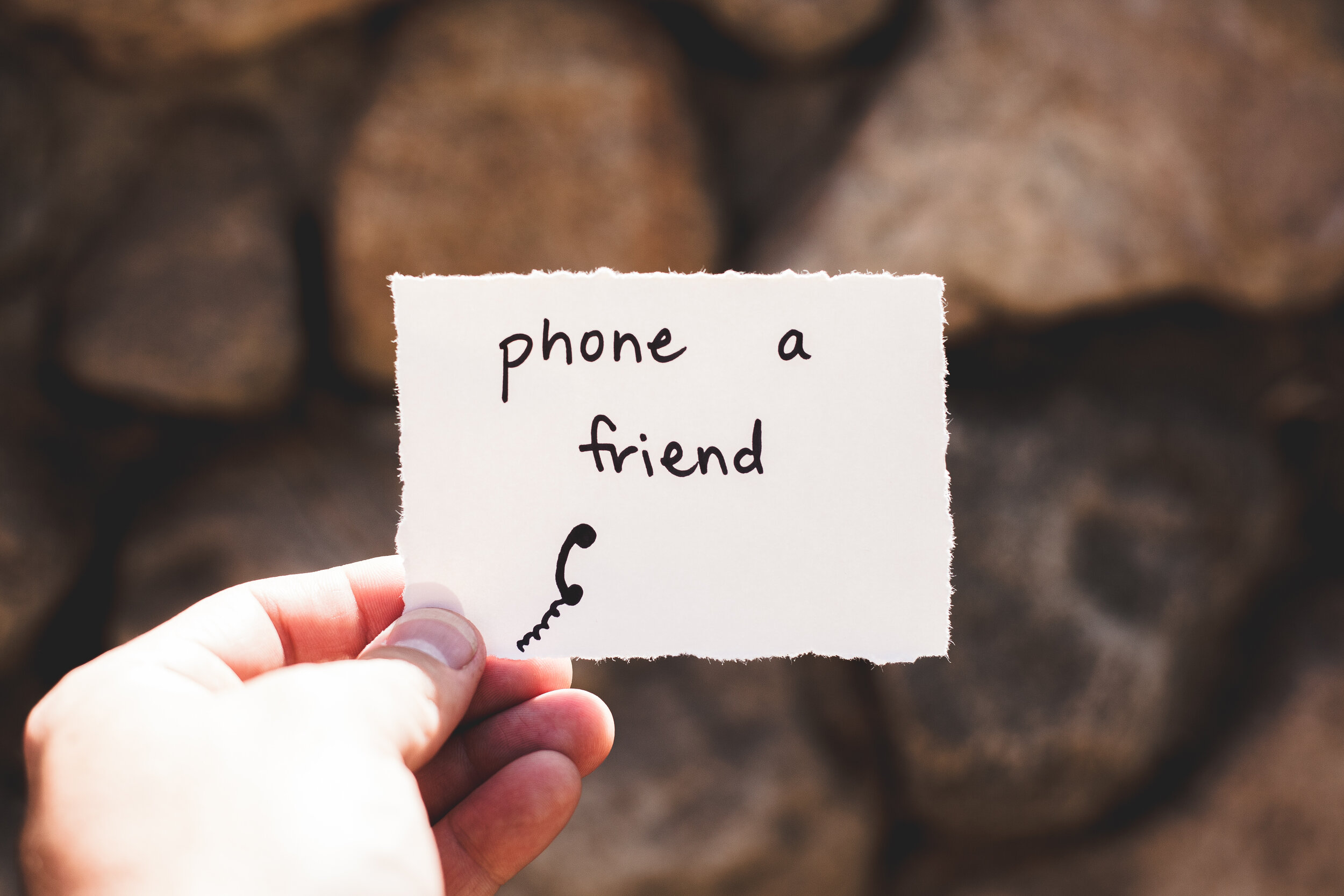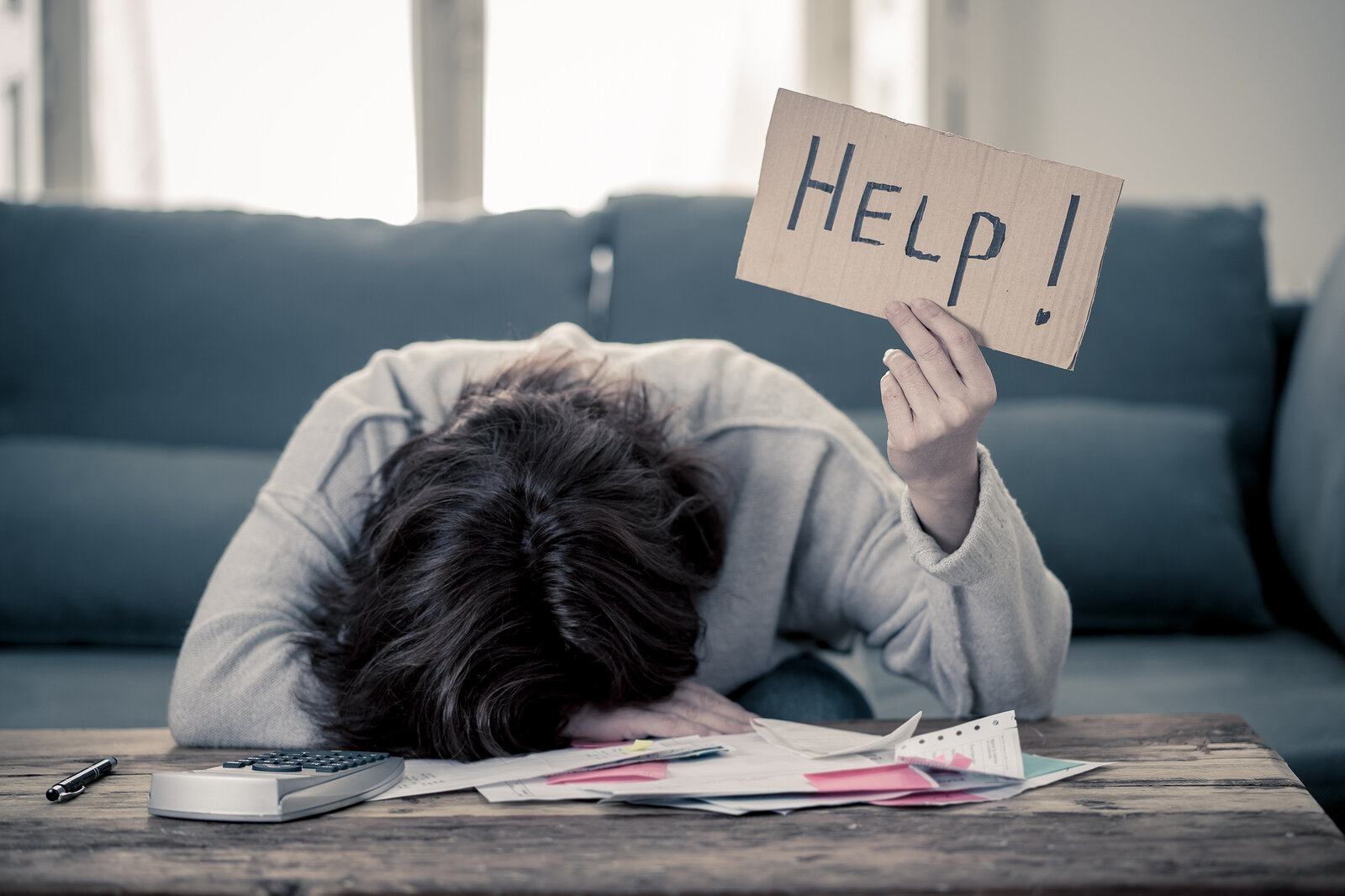A Scarsdale, NY Therapist Shares Mindfulness Tips to Manage Anxiety in a Crisis
Here I share some mindfulness #theratips to help you cope during moments of crisis!
The dangers that the coronavirus poses to all of us are very real. But, the fear and anxiety that we are experiencing as a response to this is spreading faster than the actual virus. Anxiety tells us that we’re in danger and we need to do something in order to survive. We either get ready to fight, run as far away as we can from our stressor, or do nothing. This “fight, flight, or freeze” response is not a conscious one, rather something that happens automatically. This fear response, which is absolutely beneficial when we’re facing imminent danger is now in complete overdrive for many of us. Nonstop alarming information comes into our awareness through news sources and social media. So, it might be very difficult for most people to find some sense of peace and calm that we all are searching for during these challenging times.
Mindfulness is the state of consciousness and bringing awareness to something. It helps us stay focused on the present moment without getting too caught up in all the unforeseeable aspects of the future.
Here are 3 key areas to be mindful of during a crisis:
1. Be mindful of how much time you’re spending watching the news.
I know most of us are home right now. And, it’s pretty easy to have the tv on most of the day, even if it’s just for background noise. But, I highly suggest limiting your news coverage intake. It’s important to stay informed of COVID 19 updates. Yet, overdoing it is going to interfere with you establishing some type of normalcy in your home and life in the middle of a crisis. I recommend sticking to one credible news source and setting a limited amount of time to watch or listen to stay updated in current life events. At most, 30 minutes to an hour. It may help if, throughout the day, you pause and ask yourself, “Is what I am engaging with contributing to fear or peace?”
2. Explore and acknowledge any new opportunities this time may be presented to you.
Many of us are not used to working from home and our schedules have completely changed. So, are there any opportunities this time is offering you? Some people are happy to be spending more time with their children or having more time to cook a home-cooked meal. Others are appreciating the extra hour or two in the morning from not having to get dressed up and commute to work. I’ve now gotten to expand my skill-set as I’ve been navigating doing solely virtual teaching, virtual learning, and virtual therapy. I didn’t ask for this, but I have learned a lot in the past few weeks that is only adding to my professional set of skills.
3. Notice how social distancing and isolation are affecting you.
Social distancing is not meant to be social isolation. Yes, we must be physically distant from those we love. Still, we need to be creative with ideas of how to stay connected with other people to cope with the loneliness. Some coping tips I’ve offered relate to virtual strategies. I’ve reminded everyone that virtual chats don’t have to be just for work and this has been helpful for many people. You could check out your favorite DJ’s website or social media page and see if they’re hosting a dance party online. Or, start looking for some new online classes to take. Some people have been taking virtual cooking classes, gym classes, and even dance classes. This may be a good time to learn how to salsa! If you’re used to going out with friends for Sunday brunch, host a virtual brunch and enjoy talking to your friends while drinking a mimosa!
3 mindfulness meditation techniques to practice being calm during stressful times
Deep Muscle Relaxation
Find a comfortable position and close your eyes.
Tighten each of the following muscle groups for 6-7 seconds and then relax them:
Hands and arms
Head, face, and throat
Neck and shoulders
Chest, shoulders, and upper back
Lower back, stomach, and hips
HIps, legs, and feet
After relaxing each muscle group, exhale and relax fully and completely for about 20 seconds.
Scan your body to see if there are any remaining areas of tension and attend to them.
Body Scan
A body scan is very similar to deep muscle relaxation except you’re not actually tensing or relaxing separate muscle groups. You are actually just noticing and being mindful of what your body feels like. A typical Body Scan runs through each part of the body, paying special attention to the way each area feels, starting from the feet and moving upwards. You start by bringing awareness to your breath, by noticing the rhythm of you breathing and out. Then, you focus your awareness on different parts of the body that feel sore or heavy and also those parts where you feel absolutely nothing. You can practice this on your own or you can search for a guided meditation that will lead you into this.
Guided Meditations
Some people like using guided meditations so that they can follow along with someone else’s instructions. You can easily Youtube “guided meditations” and find one that you like and plan to do it at least 5-10 minutes a day. I highly recommend using the Headspace app for guided meditations. For New Yorkers, Headspace as offered free guided meditations and other mental health resources at headspace.com/ny. If you’re not in New York, you can still enjoy some of these meditations and resources as Headspace has recently made them accessible for free during this current pandemic. You can get that at https://www.headspace.com/covid-19.
GET STARTED WITH ANXIETY THERAPY IN NEW YORK
If you are interested in getting started with a therapist who specializes in anxiety, I’m located in the Scarsdale area of Westchester and offer online therapy to anyone interested in the state of New York! To learn more about me and all the counseling services that I offer, explore my therapy website and feel free to send me an email at mguerrero@mindmattersmhc.com.
I want to be sure you are comfortable with this process from start to finish. If you have any insurance and procedural questions after reading this website, I am happy to schedule a free, 15-minute consultation first. To begin counseling in my Westchester counseling office, follow these simple steps:
Click the button below to schedule our first session.
Meet with me, Dr. Minerva Guerrero, a professional trauama & anxiety therapist.
Face your anxiety & begin to feel more peace and less worry about your life!
MORE THERAPY SERVICES IN WESTCHESTER, NY
In my Scarsdale therapy practice, I try to help each individual as fully as possible. In addition to counseling for anxiety, I offer teen counseling, therapy for adults, trauma therapy, and herapy for anxiety. Because I want to see you feel better quickly and retain that progress for years to come, I use effective counseling techniques such as EMDR, Cognitive Behavioral Therapy, and Cognitive Processing Therapy. I also support anyone in the state of New York through online therapy If you want to explore these options further, let’s connect!
3 Reasons Why COVID 19 is Triggering Anxiety & Trauma Symptoms in New York
Is the Coronavirus pandemic triggering your anxiety and trauma symptoms? Here are some possible reasons why!
People that have experienced trauma or who have PTSD often report symptoms like having nightmares or feeling as if they can’t escape their trauma. Although, many times these nightmares or flashbacks are bits and pieces of trauma replayed, many times it’s not.
Often, feeling stuck in a trauma actually has more to do with re-experiencing the negative emotions that you felt during your trauma, such as fear, anxiety, or helplessness, rather than the actual trauma memory. It’s also very common for the scent of a perfume, loud screaming, or a particular taste to take people back to their traumatic experience. For trauma experts, this makes a lot of sense because we know that trauma is not just stored in our brains but is also stored in our bodies and in our senses.
So when we are going through a crisis, like we all currently are with the coronavirus pandemic, our mindset is no longer in “living” and “thriving” but rather “surviving”. This switch in mindset can have us feeling anxious, scared, and helpless, triggering our trauma and anxiety symptoms.
Here are some reasons Covid-19 can be triggering mental health concerns for people:
SOCIAL DISTANCING
From a public health perspective, social distancing makes sense. Stay-at-home orders are an absolute must to flatten the curve and reduce the number of people exposed to the coronavirus. Social distancing works but it will take some time to see results. This means that even though in New York, where we are currently in quarantine, we have no idea how long this will last. People all around the world are finding unique ways to stay connected to loved ones (I definitely am!). But, we can’t deny that Zoom videos and phone calls with friends and family are just not the same as being in person. Feeling isolated from others can be triggering for people who have anxiety and trauma histories. Because, usually those symptoms already make it difficult to connect and engage with others. Social distancing right now is adding to that.
If you’re in New York, you’ve been waiting for Spring to come. Looking forward to warmer weather. Enjoying more sunlight. Even having some fun during Spring Break! Now, you’re not able to enjoy any of it right now because you’re stuck at home. All of this can make your trauma, anxiety, and depression symptoms worse. Also, if you’re home with someone who triggers your anxiety or plays a direct role in your trauma, your symptoms may also be much higher than your norm.
INCREASED HEALTH ANXIETY & WORRY
We’re scared. All of us. Maybe, some more than others. However, it’s natural right now to be worried about exposure to coronavirus or someone we love actually getting it. We’re washing our hands more than usual. Now, being extra mindful of what we touch. Even using gloves and masks if we have to go pick up groceries. Staying far away from people when in public places. And, the list goes on. Whether you struggled with anxiety before the pandemic or not, I’m sure you're noticing an increase in your anxiety now. An increase in anxious thoughts is understandable given our circumstances.
DECREASED WORK AND FINANCIAL SECURITY DURING COVID
Since the pandemic started, many people have gotten laid off. Others have gotten their hours cut. And, businesses -big and small- have been deeply affected. Of course, there is a lot of uncertainty right now. And, with that comes anxiety and fear. There is an even greater concern about financial stability and being able to afford basic necessities. Right now, many people are not going to prioritize their mental wellness. As a mental health counselor, this is particularly concerning. Because, many people who need the support now and for months to come won’t be thinking about this because other needs have to be prioritized.
The list can go on and on about how the COVID 19 pandemic is affecting not just our physical health but our mental health too. Make sure you are taking care of yourself. Practice being kind to yourself. Especially if you notice that your mental health symptoms are worsening.
These are difficult times right now. You are doing the best you can.
You matter. Your body matters. Your mind matters.
Be safe & Be well.
Dr. G
GET STARTED WITH THERAPY IN NEW YORK
If you live in New York and are interested in getting started with a therapist who specializes in trauma and anxiety, my counseling office is located in the Scarsdale area of Westchester and would love to work with you! To learn more about me and all the counseling services that I offer, explore my therapy website and feel free to send me an email at mguerrero@mindmattersmhc.com.
I want to be sure you are comfortable with this process from start to finish. If you have any insurance and procedural questions after reading this website, I am happy to schedule a free, 15-minute consultation first. To begin counseling in my Westchester counseling office, follow these simple steps:
Click the button below to schedule our first session.
Meet with me, Dr. Minerva Guerrero, a professional and experienced therapist.
Begin to feel more peace and less worry about your life!
MORE THERAPY SERVICES IN WESTCHESTER, NY
In my Scarsdale therapy practice, I try to help each individual as fully as possible. This is why I also provide therapy for teens, therapy for adults, trauma therapy, therapy for anxiety, and specialized techniques such as EMDR, Cognitive Behavioral Therapy, and Cognitive Processing Therapy. I also support anyone in the state of New York through online therapy If you want to explore these options further, let’s connect!
10 Grounding Skills To Help Cope with Flashbacks Related to Trauma
You can learn how to cope with flashbacks by using some of these skills to keep you in the present moment!
One of the most common symptoms associated with PTSD and trauma that my clients want help with are flashbacks.
What Are Trauma Flashbacks?
Flashbacks are when you re-experience a traumatic memory in such a way that you think you are currently reliving it. A flashback can be a temporary moment where you are still able to be connected to your present or you may lose all awareness of what’s currently happening around you and be immediately transported back to your trauma. For example, the smell of a perfume or cologne can remind you of a former abuser and instantly take you back to the abuse you experienced.
Triggers of Past Trauma
In order to help cope with flashbacks, it’s very helpful to know what your triggers are. For example, being around certain people or going to specific places/events may trigger flashbacks of past trauma. I don’t suggest you avoid these things, although people who have experienced trauma often do, I just recommend that try to learn what your triggers are so that you’re better prepared to handle them.
Grounding Skills Can Help You Cope With Trauma
In my trauma work with clients, I spend a lot of time teaching grounding techniques to help clients cope with flashbacks. As the name implies, grounding is a particular way of coping that is designed to "ground" you to keep you in the present moment. Grounding techniques help us be in the present moment rather than in the traumatic experience of the past. It’s also really good to use your five senses (sound, touch, smell, taste, and sight) when trying to ground yourself.
Here are a few grounding techniques you can try:
Look around the space you’re in and notice what’s around you- colors, objects, and people.
Notice and listen to the sounds around you. Do you hear cars, voices, music, birds chirping?
Make sure your eyes are open and if you’re in a dark space, turn on a light.
Notice your body. How do your clothes feel on your skin? How is the chair or floor supporting you? Can you feel your toes in your shoes?
Move your body. Make sure to stretch, dance, clap your hands, or walk around. If you can’t do that because of your current setting, wiggle your toes or rub your hands on your legs.
Breathe. When we get scared, we either forget to breathe or breathe too quickly. Make sure to take slow deep breathes to help calm your body.
Ask yourself questions in order to bring yourself into the present moment: Where am I right now? What day is it? What are my plans for the day?
Recite a positive affirmation: It might help to have a few affirmations or mantras already written down in your iPhone. Try “I am safe right now”, “I am in control”, or “This will pass”.
Eat something: Mindfully savor a mint, candy, chocolate, or any kind of food. If it’s something sour, even better!
Hold on to something: Notice how this item feels in your hand. This can be a piece of ice, a tissue, a pen. Anything. If you don’t have an item around that you can grab on to, squeeze your hands as tight as you can.
You Are NOT Going Crazy
Remember that flashbacks are a common symptom for people who have experienced trauma. You are not going crazy. Something bad happened to you and has left a lasting impression in your brain. These grounding skills are a great way to cope with flashbacks but the best way to prevent them is to get professional help. The fact that you are experiencing flashbacks is a sign that you are struggling to cope with the traumatic event you experienced.
NEED A LITTLE MORE? LET ME HELP YOU!
If you live in New York and are interested in getting started with a therapist who specializes in trauma, I’m located in the Scarsdale area of Westchester and would love to work with you! To learn more about me and all the counseling services that I offer, explore my therapy website and feel free to send me an email at mguerrero@mindmattersmhc.com.
I want to be sure you are comfortable with this process from start to finish. If you still have insurance and procedural questions after reading this website, I am happy to schedule a free, 15-minute consultation first.
ADDITIONAL WESTCHESTER, NY THERAPY SERVICES
From my Scarsdale therapy practice, I want to bring peace and contentment to all types of individuals and families. This is why I provide therapy for adults, therapy for teens, and other specialized techniques such as EMDR, Cognitive Behavioral Therapy, and Cognitive Processing Therapy. In fact, I can support anyone in the state through online therapy in New York. If you want to explore these options further, let’s connect!
Loving Yourself After Surviving Trauma
Here are some of my #TheraTips for how to show yourself the love you deserve after surviving trauma.
If you’ve struggled with self-esteem and self-care, learning to love yourself doesn’t happen overnight. It’s even more complex if you’ve been through trauma and have been made to feel unworthy or unlovable. But I’m here to remind you that you are worthy of love and so very deserving of it.
Tips for Boosting Your Self Love from a Trauma Therapist
After helping so many survivors, I am thrilled to share my best #TheraTips for how to show yourself the love you deserve after surviving trauma.
Self-Love Tip #1: Stop Hiding Yourself from the World
People who have experienced trauma often find themselves avoiding. Avoiding people, avoiding attention, avoiding intimacy, avoiding feelings, or avoiding anything that could remind them at all about the trauma. I get it. Avoidance keeps you safe. Avoidance keeps you from the unknown. But avoidance also keeps you from living and fully embracing what the world has to offer you and what you can offer the world. I’ve worked with many trauma survivors who have hidden so much of themselves from others, that they also realize that in many ways, they have also been hiding from themselves. Have you gotten to know who you are after your trauma? If your trauma occurred when you were a child, how does your adult-self remember your inner child? How has that impacted how you see yourself as an adult today? I encourage you to think about letting yourself shine through, not just to other people, but to yourself as well.
Self-Love Tip #2: Don’t force yourself to find meaning or a silver lining in your trauma. But if you see it, don’t shy away from it!
Meaning is one of the values I highly prioritize in my counseling work with clients. Meaning is not something we can directly search for and obtain. It is an ongoing process we will struggle with throughout our entire lives. In my work with clients, I’ve found that lots of people are struggling with a lack of meaning or purpose in their lives, especially in these modern times. Going through a trauma impacts our lives in such a way that sometimes the meaning in our lives is even harder to recognize or can even be non-existent. Some trauma survivors struggle with enjoying activities that they used to love or have difficulty experiencing positive emotions like joy or happiness. However, it’s also common for people who have gone through trauma, to experience more meaning in their life is at least one way and see a silver lining. The most common things I’ve heard include developing an appreciation for the little things in life like a sunny day or a good meal, feeling more aligned with their spirituality, embracing their relationships with family and friends, and feeling more resilient and even proud of overcoming their trauma. I don’t encourage anyone to force themselves to find meaning in their trauma or to try to justify why it happened, but if you are experiencing some of these positive changes, I want you to embrace it.
Self-Love Tip #3: Accept Where You Are
Loving yourself after trauma involves accepting that some of your interactions out in the world are no longer going to be the same. You may not be eager to open yourself to others without getting to know them extremely well. You may not be the risk-taker you used to be. You may not want to interact with other people. There’s nothing wrong with that. After a child touches a hot stove and gets burned, I would assume and actually hope they’d be more skeptical to touch the stove again without knowing for sure that it’s off. It’s the same with you. Whether you’ve experienced sexual abuse in childhood, physical abuse as an adult, or emotional withdrawal from someone you loved and depended on, I would expect you to be at least a little more cautious in your personal relationships. I often remind my clients that allowing yourself to experience true love from friends and family is part of what makes life so worthwhile. But trauma recovery takes time. Don’t be so hard on yourself. Other people may not understand you, but you do. You know why you’re protecting yourself. And I do too.
Self-Love Tip #4: Choose to Show Yourself Some Love
If you’ve been through trauma as a young child, you most likely grew up knowing what it was like to feel unloved. Being unloved not only includes the actual experience of abuse but neglect as well. After years of this, I get why you’ve learned to feel unworthy of love. Even if your trauma happened later on in life, you know what I’m talking about-- that feeling of not being good enough or not being worthy of love and attention. You actually may still be waiting for that love from a parent or partner that you never got. But that kind of love you’ve been yearning for probably isn’t going to ever come from them. YOU need to learn how to give yourself the love you have not received. Do you know why? Because you are worthy of love. So very worthy of love. People often ask me, “How do I love myself?” That’s such a big question and the answers may look different for each person.
One thing I usually say is that loving yourself is more than just the feeling of love but more like the act of love.
These are some of my favorite acts of self-love:
Participate in activities you enjoy (either alone or with someone else)
Spend time with the people that you love and that love you
Enjoy healthy foods but also indulge in a dessert that you love and enjoy every single bite!
Find your favorite positive mantras and quotes and live by them. My favorites are “This too shall pass.”, “Beautiful are those whose brokenness gives birth to transformation & wisdom.”, and “I am not what has happened to me. I am what I choose to become.”
Focus on what’s great about you. This can be harder for some people than others. If it is, start with the basics, “ I’m a really good listener” or “ I make my friends laugh a lot”.
Prioritize your physical and mental health. Go to the gym, yoga, kickboxing, whatever! Just get your body moving. And find a therapist- preferably one who specializes in trauma. Having a trusted and skilled professional guide you through your trauma recovery will make all the difference for you in your journey. Even if you think your trauma isn’t really affecting you, it’s worth going to a therapist, even if it’s just to confirm that everything is okay.
Need a Little More? Let me help you!
If you live in New York and are interested in getting started with a therapist who specializes in trauma, I’m located in the Scarsdale area of Westchester and would love to work with you! To learn more about me and all the counseling services that I offer, explore my therapy website and feel free to send me an email at mguerrero@mindmattersmhc.com.
Wishing you all so much love because YOU deserve it! ~Dr. G.
BEGINNING THERAPY IN SCARSDALE, NY
Taking time for your mental health is key to overall wellbeing, especially as a young adult or working professional. Let’s get you feeling good so you can keep doing amazing things for the world! To begin counseling in my Westchester counseling office, follow these simple steps:
Click the button below to schedule our first session.
Meet with me, Dr. Minerva Guerrero, a professional and experienced therapist.
Begin to feel more peace and less worry about your life!
I want to be sure you are comfortable with this process from start to finish. If you still have insurance and procedural questions after reading this website, I am happy to schedule a free, 15-minute consultation first.
MORE THERAPY SERVICES IN WESTCHESTER, NY
From my Scarsdale therapy practice, I want to help you feel more comfortable, confident and connected to others. This is why I also provide therapy for teens, therapy for adults, trauma therapy, therapy for anxiety, and specialized techniques such as EMDR, Cognitive Behavioral Therapy and Cognitive Processing Therapy. If you want to explore these options further, let’s connect!
CPT & EMDR: What’s the difference between these two trauma therapies?
Are you interested in trauma therapy but not sure what type of treatment will work best for you? Here I discuss some differences between CPT and EMDR.
A common question from those interested in trauma therapy is:
“What’s the best type of treatment that can help me?”
There are several types of effective trauma therapies, but I specifically am trained in Eye Movement Desensitization and Reprocessing (EMDR) and Cognitive Processing Therapy (CPT).
In this post, I discuss some of the main differences between these two types of treatment to help you decide which one seems like a better fit for you.
EMDR is primarily known as trauma therapy but is used to treat other issues as well. CPT is only used for the treatment of Post-Traumatic Stress Disorder (PTSD).
EMDR is a type of treatment that enables you to heal from the symptoms and emotional distress associated with traumatic and negative life experiences. It’s an effective therapy that can help people struggling with a variety of issues including but not limited to, complex trauma, PTSD, anxiety, panic attacks, chronic illness, and low self-esteem.
CPT is an effective type of trauma treatment specifically for PTSD. Before determining if CPT is an appropriate treatment for you, a thorough PTSD assessment is necessary.
CPT focuses more on an individual’s thoughts about the trauma rather than the trauma memory. EMDR focuses on the worst parts of the trauma memory.
Although in CPT treatment, there is some focus on the actual trauma memory, CPT is more about your thoughts about the trauma. CPT teaches skills to analyze and challenge negative thoughts related to the experienced trauma. These skills will help you decide whether there are more helpful ways to think about your trauma and whether factual information about the trauma actually supports your thoughts or not. Throughout your treatment, you will decide whether it makes sense to take a new perspective about what happened to you.
EMDR focuses on the worst parts of the trauma memories with bilateral stimulation. Throughout an EMDR processing session, there will be brief moments of exposure to the trauma memory combined with the eye movements which help make the process more tolerable. However, you get to choose how much detail of the trauma memory you want to disclose to your therapist. While EMDR also focuses on your negative thoughts about yourself as a result of the trauma, EMDR is not primarily a cognitive treatment as CPT is. EMDR helps to connect your mind and body by connecting your thoughts to your body sensations and tensions. This treatment helps get both your brain and body on the same page.
CPT involves homework while EMDR doesn’t.
CPT involves weekly homework assignments designed to practice the skills that you will be learning in sessions. Completing these assignments is a big part of the treatment, the most important part in fact! Most people find that the more effort and energy they put into it, the more they get out of it.
EMDR doesn’t involve homework assignments but even though I wouldn’t call it homework per say, I strongly advise anyone in any type of trauma treatment to practice self-care and self-compassion.
CPT is typically 12 sessions while the length of EMDR treatment is dependent on various factors.
On average, CPT will consist of 12 sessions, meaning that if done once a week, your PTSD symptoms will have improved in just 3 months! There is no specific time frame for EMDR as some people can report a drastic improvement in just a few sessions, while others may need to be in treatment longer. The type of problem, life circumstances, and the amount of previous trauma will determine how many EMDR sessions are necessary.
These are just some of the basic differences between CPT and EMDR. Ultimately, patient preference is critical in decision making so make sure to discuss with your therapist your goals for therapy and together you can decide what works best for you!
BEGINNING THERAPY IN SCARSDALE, NY
Taking time for your mental health is key to overall wellbeing, especially as a young adult or working professional. Let’s get you feeling good so you can keep doing amazing things for the world! To begin counseling in my Westchester counseling office, follow these simple steps:
Click the button below to schedule our first session.
Meet with me, Dr. Minerva Guerrero, a professional and experienced therapist.
Begin to feel more peace and less worry about your life!
I want to be sure you are comfortable with this process from start to finish. If you still have insurance and procedural questions after reading this website, I am happy to schedule a free, 15-minute consultation first.
MORE THERAPY SERVICES IN WESTCHESTER, NY
From my Scarsdale therapy practice, I want to help you feel more comfortable, confident and connected to others. This is why I also provide therapy for teens, therapy for adults, trauma therapy, therapy for anxiety, and specialized techniques such as EMDR, Cognitive Behavioral Therapy and Cognitive Processing Therapy. If you want to explore these options further, let’s connect!
Recover from Trauma with EMDR
Have you been wanting to know more about EMDR? Here, I discuss trauma and some important information on what EMDR is, how it works, and what to expect in trauma therapy!
Mental health issues do not discriminate.
Trauma can happen to anyone.
Young, old, rich, poor, black, white, brown.
You name it.
The only requirement to struggle with mental health is to be a living being.
In my experience as a licensed mental health counselor, I have worked with many people experiencing a variety of struggles pertaining to anxiety, depression, low self-esteem, interpersonal issues, and difficulties regulating emotions. However, almost all of the clients that I have worked with have experienced some type of trauma. Before I continue, I want to differentiate between little “t” traumas and big “t” traumas.
Big “T” Traumas and Little “t” Traumas
Most people are familiar with the big “t” traumas. These are events most likely associated with Post-Traumatic Stress Disorder that include acts of violence, sexual or physical abuse, combat/war zone, natural disaster, among other events of similar magnitude.
Little “t” traumas are not exactly life-threatening but do threaten your sense of self and exceed your capacity to cope. These include loss of significant relationships, emotional abuse, neglect from a caregiver, and unexpected life changes.
Differentiating between little “t” and big “t” traumas is very common in the mental health field but most people who specialize in trauma, as I do, recognize that trauma is not necessarily about the event itself and what category it falls under, but more about the impact left behind by the trauma. Experiencing a betrayal from a loved one may not be a life-threatening event but for some people, it can leave a deep, lasting impact on whether or not they experience safety in an interpersonal relationship again, while for someone else, they may not be that deeply impacted and can resolve this issue much easier.
How Our Brains Work to Protect Us from Trauma
Our brain works hard to protect us even in the face of trauma. When something negative happens to us, our brain tries to organize the event in efforts to understand it but sometimes, these disturbing memories get stuck in the wrong part of our brain. Traumatic memories sometimes get stuck in our feelings and in our bodies, rather than the cognitive part of our brain.
Eye Movement Desensitization Reprocessing (EMDR) is a form of therapy that can help break up memories and shift them to where they belong. EMDR has been extensively researched and recognized as an effective treatment of trauma by the World Health Organization, American Psychiatric Organization, the U.S. Department of Veteran Affairs, among others. However, many people do not actually know what an EMDR session consists of.
What happens during an EMDR Trauma Therapy Session?
In an EMDR session, the client will recall a disturbing event, identifying the thoughts about one’s self or feelings that accompanied the event at the time it happened, while also identifying current thoughts or feelings pertaining to the experienced event. Examples of negative thoughts associated with distressing events include “I am not safe.” or “I am a failure.” While recalling this event, the client will also undergo bilateral stimulation, which is the core element of EMDR. Bilateral stimulation consists of the use of visual, auditory, or tactile external stimulation occurring in a side-to-side pattern. Clients can choose which type of stimulation feels most comfortable to them. Some people prefer a light bar where light moves back and forth and they follow this light with their eyes. Others might prefer tappers that vibrate from both left and right hands or tones that sound back and forth between each ear.
Thoughts During an EMDR Session
Once the client and their therapist agree to the bilateral stimulation, reprocessing/desensitization begins. The disturbing event that the therapist and client decide to target is brought up along with the body sensations, emotions and thoughts while simultaneously undergoing bilateral stimulation. The therapist will guide their client to activate thoughts and feelings and will focus on past traumas, current stressors, or worries about the future. During an EMDR session, the client is in control the entire time with the brain really doing most of the work. The therapist will follow the client’s lead, prioritizing emotional safety and comfort. The therapist will guide the client through several sets of this, as more associations come up for the client. Each person will process information differently and there is absolutely no right or wrong way to process information during an EMDR session. Reprocessing will continue until the memory becomes less disturbing and is associated with more positive beliefs about one’s self, such as “I can trust others.” or “I am safe now.” A typical EMDR session lasts from 60-90 minutes while the number of sessions needed to process a traumatic event is dependent on the specific problem and the trauma history of the client.
Staying Safe During Your EMDR Therapy Session
In order to ensure safety during EMDR, clients will be using several techniques such as grounding, relaxation, and mindfulness skills before, during, and after an EMDR session as taught by their therapist. The therapist will not begin EMDR unless they are sure that their client is ready and able to manage the feelings and sensations that may arise during treatment. During processing, the therapist will work to repeatedly ground their client by keeping them in touch with their current feelings and sense of safety to prevent them from drifting away from reality and into the traumatic experience. As with any other type of psychotherapy, after an EMDR session, there may be a temporary increase in distress as the processing of material and underlying feelings may continue. The therapist will be available to support the client if this were to occur and will review the skills that they have already trained their client in order to relieve the distress.
As a trauma-informed therapist, I am hopeful that more people will discover EMDR and consider it as a form of treatment to live a life free from the aftermath of traumatic events. Anyone interested in experiencing EMDR should look for a trauma-informed licensed therapist with additional training in EMDR. As with any type of therapy, it is also of utmost importance to find a therapist whom you feel comfortable working with and trust.
To learn more about EMDR, please visit emdria.org.
To learn more or inquire about working with Minerva Guerrero, Ph.D., LMHC, please visit www.mindmattersmhc.com or email mguerrero@mindmattersmhc.com.
BEGINNING THERAPY IN SCARSDALE, NY
Taking time for your mental health is key to overall wellbeing, especially as a young adult or working professional. Let’s get you feeling good so you can keep doing amazing things for the world! To begin counseling in my Westchester counseling office, follow these simple steps:
Click the button below to schedule our first counseling session.
Meet with me, Dr. Minerva Guerrero, a professional and experienced therapist.
Begin to feel more peace and less worry about your life!
I want to be sure you are comfortable with this process from start to finish. If you still have insurance and procedural questions after reading this website, I am happy to schedule a free, 15-minute consultation first.
MORE THERAPY SERVICES IN WESTCHESTER, NY
From my Scarsdale therapy practice, I want to help you feel more comfortable, confident and connected to others. This is why I also provide therapy for teens, therapy for adults, trauma therapy, therapy for anxiety, and specialized techniques such as EMDR, Cognitive Behavioral Therapy and Cognitive Processing Therapy. If you want to explore these options further, let’s connect!
*This article first appeared on Brown Girls Mental Health December Digital and Print Magazine on November 27th, 2019. All proceeds from their magazine subscriptions supports their providing of relatable mental health resources to women of color. www.browngirlsandmentalhealth.com
























